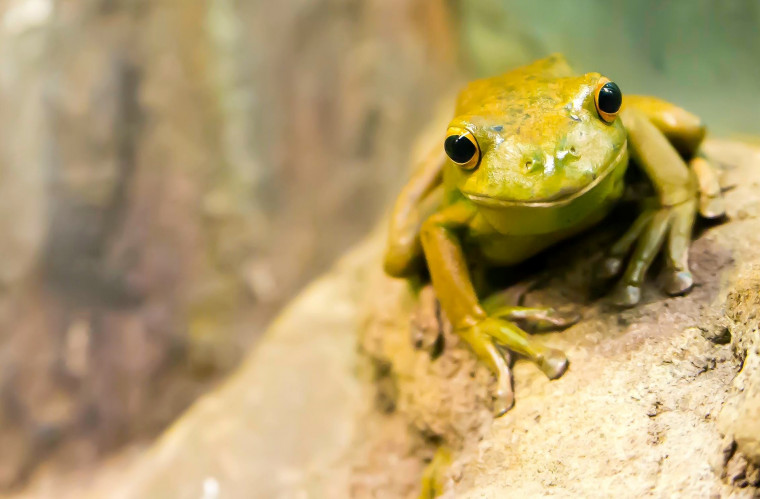Why We Must Slam the Brakes on the Wildlife Trade
In this blog piece, Professors Erica Lyman and Nick Fromherz address why the Global North must slam the brakes on the wildlife trade—because human health, wildlife conservation, and international justice demand import moratoria.
Open gallery

“But the region continues to work as a servant. It continues to exist at the service of foreign needs, as a source and reserve of petroleum and iron, copper and meat, fruit and coffee, primary resources and foods destined for rich countries that profit through consumption[.]”
–Eduardo Galeano, The Open Veins of Latin America
When Eduardo Galeano penned these words in 1971, he was referring to the ongoing flow of natural resources and the fruits of human labor from Latin America to the United States and Europe. His primary concern at the time may have been the economic conditions of the working class in developing countries, but his words speak just as poignantly to another stubborn dynamic: the role of rich nations in exploiting the earth.
Today, in the midst of a global pandemic, this dynamic is—or should be—clearer than ever. COVID-19 has brought the world to its knees courtesy of the international wildlife trade, a trade that would not exist without demand. Which countries play host to that demand? By and large, rich countries in the Global North. Just as surely as gold and silver flowed for centuries from Latin America and Africa to fill northern coffers, animal and forest products are sucked north today, from biodiverse-rich countries in the developing world to consumers in wealthy states.
But consumer countries’ obligation to transform its relationship with wildlife goes far beyond human health. Just as the world struggles through pandemic upheaval and loss, we find ourselves in the midst of a conservation crisis, with species winking out of existence at a rate that is at least tens to hundreds of times higher than it has averaged over the past 10 million years. Here, too, much of the blame lies at the feet of consumers and accommodating governments in the North.
While COVID-19’s leap from animals to humans may have caught the world off guard, the international community cannot profess surprise with respect to humans’ toll on global biodiversity. Only months prior to the emergence of COVID-19 in humans, a panel of the world’s foremost scientists released the 2019 Global Assessment Report on Biodiversity and Ecosystem Services. This report delivered an ominous prediction: around one million species could go extinct unless we take drastic steps to transform our use of animals, plants, and the entire natural world. According to the report, our direct exploitation of wildlife is the second leading driver of this biodiversity crisis. Insofar as exploitation responds to markets, and those markets disproportionately lie in rich nations, the Global North once again has the dubious honor of fueling a crisis.
If we wish to reduce the risk of future zoonotic pandemics, the major consumer countries must take profound steps to reduce demand. This includes China, to be sure, but it also includes the U.S. and Europe. In the fight against zoonotic disease, China and other Asian countries do not alone bear the burden of change. Indeed, calls to shut down Asian wet markets overlook the reality that consumers in the United States alone account for an estimated 20 percent of the global wildlife market. The number of live animals imported into the U.S. is staggering—Americans import millions of live fish and birds, primarily for the pet industry, and over 2,000 tons of live frogs, some for human consumption. Tens of thousands of ball pythons have been imported into the U.S., originating from the wild, as have thousands of lizards and tortoises.
Is there a policy proposal that would at once curb the risk of pandemic zoonoses and widespread biodiversity loss, while accounting for the Global North’s role as a driving force of these ills? Yes—and it is surprisingly obvious. The world’s top consuming countries—including, at a minimum, the U.S., members states of the European Union, and China—should immediately impose moratoria on commercial wildlife imports. Such action would demonstrate leadership, commitment, and resolve, all while reflecting the urgency and scale of both the health and conservation crises.
The responsibility of consumer countries cannot be overstated—without demand, legal global wildlife supply chains cease to exist. Actions by even a few significant consumer countries would drastically reduce interactions with wildlife by orders of magnitude. If coupled with strong penalties and effective enforcement, import moratoria in demand countries would immediately and significantly diminish the scale of legal trade, while sending a potent signal to wildlife criminals that the days of impunity are over. Of course, to be durable, funding and capacity building for alternative livelihoods for those communities that rely on wildlife trade are necessary components of any import moratoria.
Moratoria of the kind described would yield change far more reaching than the refrain to “close wet markets” and “shut down illegal trade.” Closing markets that offer wildlife as food is an obvious and important response to the COVID calamity, but it alone as a policy response fails to address the large-scale global movement of wildlife products, largely from the Global South to the Global North.
Calls to end the illegal wildlife trade are neither innovative nor commensurate with the dual threats of zoonotic disease and the ongoing biodiversity crisis. Most trade and commerce in wildlife is legal. Without more, a campaign to end illegal trade borders on irrelevance; by definition, governments have already made the decision to brand such trade as unacceptable. And if the call is actually meant to convey the need for redoubled enforcement, then it falls squarely within the category of “necessary but insufficient.”
To be clear, we are not suggesting that only governments in the Global North should take action. All nations must contribute to warding off the next zoonotic outbreak and to reversing the biodiversity crisis—this is especially true with respect to habitat conservation. However, not all nations should be asked to take the same actions within the same timeframe. Essentially, the principle of “common but differentiated responsibilities,” most strongly associated with climate change, should guide the policy-making framework. Asking the North to lead does not alleviate source countries from all obligation; it simply means that the North must act in accordance with its greater share of both culpability and capability. Ultimately, the North has the financial and political wherewithal to implement transformative policy initiatives.
Detractors will argue that this proposal comes from a place of privilege. Banning wildlife trade deprives economically vulnerable communities of their livelihoods, the argument runs. While anyone working in wildlife conservation would agree that alternative livelihoods are a critical component of any successful program, to isolate the economic benefits that some communities reap form harvesting wildlife is to ignore both the North’s exploitive practices and the costs imposed upon these same communities from COVID-19—costs that will be replicated in future zoonotic pandemics. COVID-19 is striking hardest at the poor and politically powerless in the Global South. With large numbers of workers engaged in the informal economy, developing nations are seeing entire swaths of society cut off from earning a living. This is happening in wealthier nations, too, but the effects are far more extreme in countries where enormous numbers of people were barely surviving even before the pandemic struck.
The right move at this moment—import moratoria on commercial imports of wildlife in wealthy consumer nations—is staring us in our face. It is the right move regardless of the lens we choose, and regardless of the value we see as most important. Such action won’t zero-out zoonotic disease risk and it won’t alone solve the extinction crisis; it is not a panacea, but it is a bold move in the right direction. Whether we care about human health and welfare, wildlife conservation, global justice in an unfair world, or all three, asking the Global North to suspend imports is more than justified—it is imperative.



The Center for Animal Law Studies (CALS) was founded in 2008 with a mission to educate the next generation of animal law attorneys and advance animal protection through the law. With vision and bold risk-taking, CALS has since developed into a world-renowned animal law epicenter, with the most comprehensive animal law curriculum offered anywhere. In addition, CALS is the only program that offers an advanced legal degree in animal law and three specialty Animal Law Clinics, including our newly launched International Wildlife Law Clinic. CALS is a nonprofit organization and is only able to provide these educational opportunities through donations and grants.
More Center for Animal Law Studies Stories
Center for Animal Law Studies is located in Wood Hall on the Law Campus.
MSC: 51
email cals@lclark.edu
voice 503-768-6960
Center for Animal Law Studies
Lewis & Clark Law School
10101 S. Terwilliger Boulevard MSC 51
Portland OR 97219

